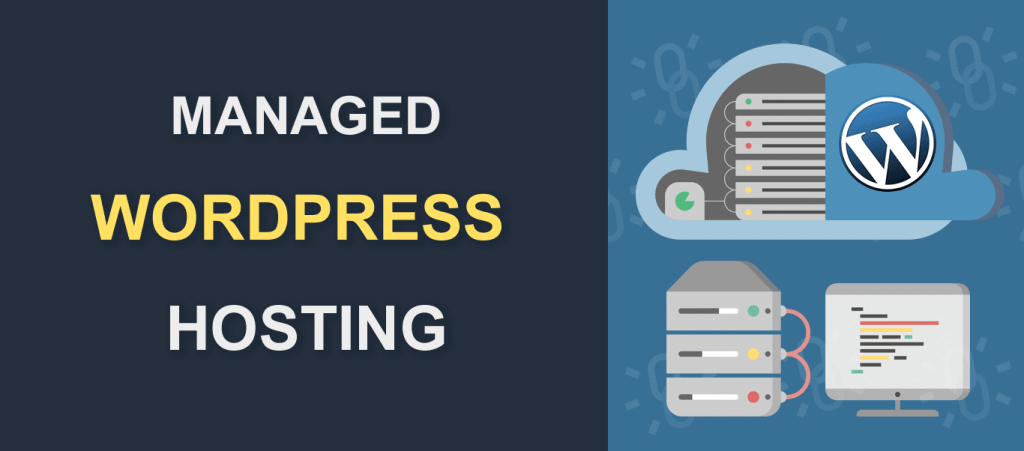Types of Web Hosting (And How to Choose the Best One for You)

When you’re building a website—whether for a blog, a small business, an online store, or a portfolio—one of the most critical decisions you’ll make early on is choosing the right web hosting service. While it’s easy to focus on the design, content, and marketing aspects, hosting is the foundation. Without reliable hosting, even the most beautiful website can suffer from slow load times, frequent downtimes, or even security vulnerabilities.
But web hosting isn’t a one-size-fits-all solution. There are different types of hosting tailored to various needs, budgets, and levels of technical skill. In this in-depth guide, we’ll explore the major types of web hosting, explain how they work, outline their pros and cons, and help you determine which option is best for your unique situation.
What Is Web Hosting?
Before diving into the types, let’s clarify what web hosting actually is. At its core, web hosting is a service that allows individuals or organizations to publish a website on the internet. A hosting provider stores your website files (HTML, images, videos, databases, etc.) on a server and makes them accessible via the web.

Think of it this way: if your domain name is your website’s address, then your hosting service is the actual building where your website lives.
1. Shared Hosting: The Starter Solution
What It Is:
Shared hosting is when your website shares server space and resources (like CPU, RAM, and bandwidth) with other websites on the same server. It’s the most affordable and beginner-friendly option available.
Pros:
- Extremely cost-effective
- Great for beginners with small websites
- Easy to set up; most come with control panels like cPanel
- Managed and maintained by the hosting provider
Cons:
- Limited resources
- Performance can suffer if another site on the server experiences high traffic
- Less control over server configurations
- Not ideal for high-traffic or resource-intensive websites
Best For:
New bloggers, personal websites, small businesses just starting out, or anyone with a limited budget.
2. Virtual Private Server (VPS) Hosting: A Middle-Ground Option
What It Is:
A VPS is a virtualized server that mimics a dedicated server but within a shared environment. You still share the physical server with others, but your site gets its own dedicated slice of resources.
Pros:
- More control and customization than shared hosting
- Improved performance and reliability
- Scalable to growing needs
- Often includes root access
Cons:
- More expensive than shared hosting
- Requires some technical knowledge to manage effectively
- Not truly isolated like dedicated servers
Best For:
Growing websites, medium-sized businesses, or tech-savvy users who want more control without the full cost of a dedicated server.
3. Dedicated Hosting: Full Control, Full Responsibility
What It Is:
With dedicated hosting, you rent an entire physical server exclusively for your website. No other websites share resources with you.
Pros:
- Maximum performance and speed
- Complete control over server configurations
- Enhanced security
- Ideal for high-traffic websites
Cons:
- High cost
- Requires technical expertise or a system administrator
- You’re responsible for server maintenance unless managed
Best For:
Large businesses, high-traffic eCommerce stores, enterprise-level applications, and websites with custom hosting needs.
4. Cloud Hosting: Scalable and Resilient
What It Is:
Cloud hosting uses a network of interconnected servers to host websites. If one server fails, another takes over, making it highly reliable. Resources are drawn from multiple servers dynamically, which makes it easily scalable.
Pros:
- Highly scalable—pay for what you use
- Extremely reliable and resilient
- Great performance and uptime
- Suitable for traffic spikes
Cons:
- Pricing can be unpredictable
- Can be complex to manage without technical experience
- Some providers offer limited support
Best For:
Startups, fast-growing websites, apps, or platforms that expect variable or high traffic.

5. Managed WordPress Hosting: Optimized for Simplicity
What It Is:
Managed WordPress hosting is a type of hosting specifically designed for WordPress sites. The provider handles technical aspects like updates, security, backups, and optimization.
Pros:
- Optimized performance for WordPress
- Automatic updates and backups
- Enhanced security and support
- Often includes staging environments and caching
Cons:
- More expensive than shared hosting
- Limited flexibility—may restrict plugins or themes
- Only for WordPress sites
Best For:
Bloggers, businesses, and content creators who want to focus on content without managing the backend.
6. Reseller Hosting: Hosting for Entrepreneurs
What It Is:
Reseller hosting allows you to sell hosting services to other people. You buy hosting in bulk from a provider and then offer it to your own clients under your brand.
Pros:
- Potential revenue stream
- Great for web developers or agencies
- Comes with management tools and white-label options
Cons:
- Requires technical knowledge
- You’re responsible for customer support
- Not suitable for casual users
Best For:
Web developers, design agencies, or anyone interested in offering hosting as a service.
Key Features to Consider When Choosing Web Hosting
Now that we’ve explored the different types of hosting, how do you know which one is right for you? Consider these core features when making your decision:
1. Performance
Look for hosting with fast loading times, a solid infrastructure (like SSD storage), and content delivery networks (CDNs).
2. Uptime Guarantee
A reliable hosting provider should offer at least a 99.9% uptime guarantee. Anything less is unacceptable in today’s always-on world.
3. Security Features
Security measures such as SSL certificates, DDoS protection, firewalls, and malware scanning are essential, especially if you collect personal data or run an eCommerce site.
4. Scalability
As your traffic grows, your hosting plan should be able to grow with you—whether it’s through simple upgrades or seamless cloud scaling.
5. Support
24/7 customer support is crucial. Live chat, phone, or ticket systems—choose a host known for quick, knowledgeable responses.
6. Pricing Structure
Evaluate not just the initial cost but also renewal rates, extra fees for backups, SSLs, or bandwidth overages.
Matching Hosting Type with Your Needs
To make your choice easier, here’s a quick breakdown based on common scenarios:
| Use Case | Recommended Hosting |
|---|---|
| Personal blog or portfolio | Shared or Managed WordPress |
| Small business site | VPS or Managed WordPress |
| High-traffic blog | VPS or Cloud Hosting |
| Large eCommerce store | Dedicated or Cloud Hosting |
| Developer agency | Reseller Hosting |
| Website with fluctuating traffic | Cloud Hosting |
Migration and Switching Hosts
What if you’re not happy with your current host? Good news: migrating your website is easier than it used to be. Many hosting providers offer free migration services. If not, you can manually move files and databases or use migration plugins, especially for WordPress sites.
Before switching:
- Back up all your data
- Choose a new host with better uptime, support, and scalability
- Test the new site before changing DNS settings
Choosing the right web hosting is about more than just cost—it’s about finding a balance between performance, support, flexibility, and scalability. Whether you’re launching your first blog or scaling up a high-traffic online store, there’s a hosting type that fits your needs.
Take the time to assess your current and future goals. A good host is not just a vendor—it’s your digital partner. The right choice will ensure your website is fast, secure, and always available when your audience comes calling.



